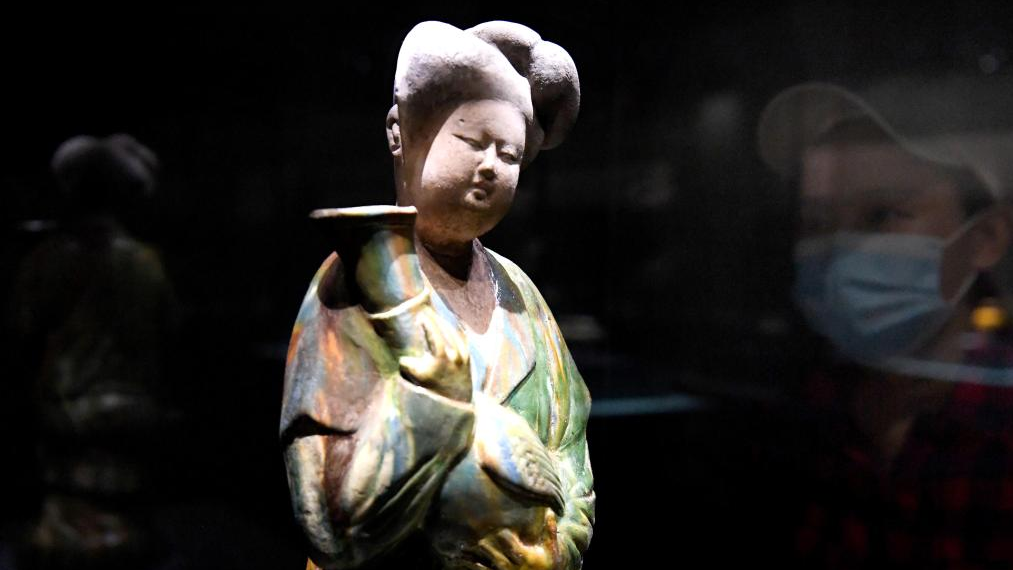Eurozone inflation hits new record of 9.1 pct amid higher energy, food prices
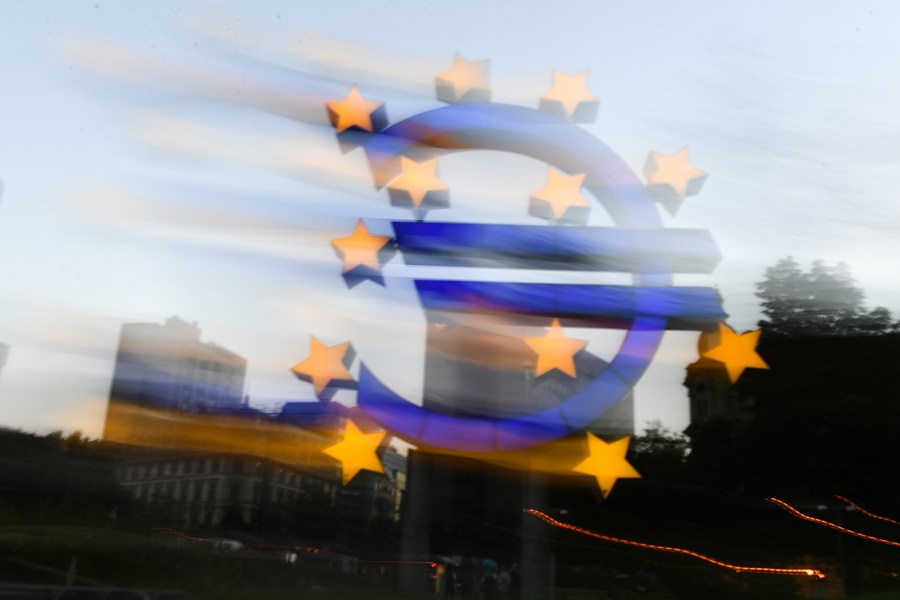
Photo taken on June, 1 2022 shows the Euro sculpture in Frankfurt, Germany. (Xinhua/Lu Yang)
Energy price is still the primary driving force behind this growth, with an expected year-on-year inflation of 38.9 percent for August. Food, alcohol and tobacco prices continue to rise, with an expected yearly inflation of 10.6 percent.
BRUSSELS, Aug. 31 (Xinhua) -- Inflation in the Eurozone hit a new record of 9.1 percent in August as energy and food prices continued to drift higher, according to a flash estimate published on Wednesday by Eurostat.
Inflation was at 8.9 percent in the 19-country single currency area in July.
Eurostat estimates that the Baltic countries should be recording the highest inflation rates for August, with 25.2 percent for Estonia, 21.1 percent for Lithuania, and 20.8 percent for Latvia.
Energy price is still the primary driving force behind this growth, with an expected year-on-year inflation of 38.9 percent for August. Food, alcohol and tobacco prices continue to rise, with an expected yearly inflation of 10.6 percent.
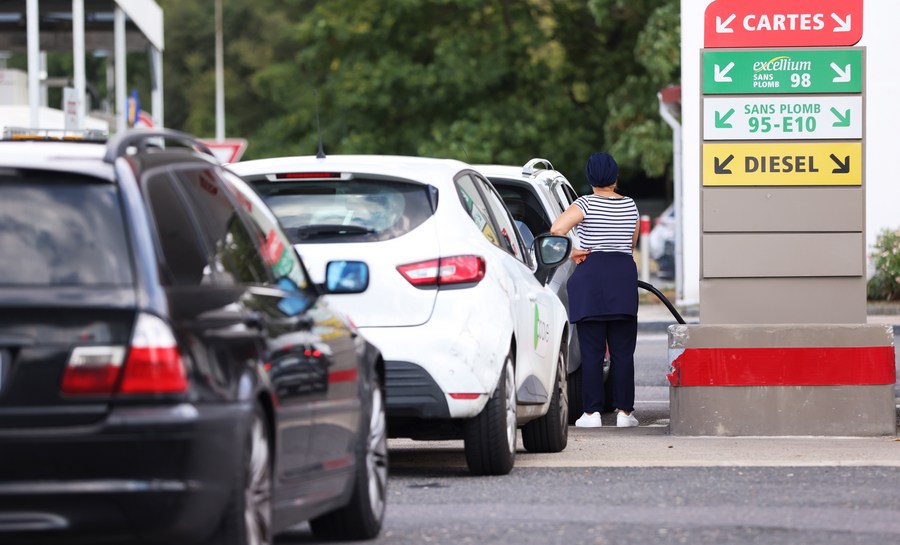
A woman fills the tank of her car at a gas station near Paris, France, Aug. 18, 2022. (Xinhua/Gao Jing)
Year-on-year inflation for non-industrial goods should also rise from 4.5 percent last month to 5 percent in August, a matter of concern for experts.
"The main concern is the surprise increase in goods inflation," said Bert Colijn, ING's senior economist for the Eurozone. "The increase from 4.5 percent to 5 percent was much larger than expected and fuels worries about second-round effects from the input cost shock lasting longer."
The price of services should also register a slight rise from 3.7 percent in July to 3.8 percent in August, according to the Eurostat estimates.
Specific European problems continue to push inflation higher. The gas supply crisis and droughts are adding to persisting supply-side pressures on inflation at the moment, according to Colijn.
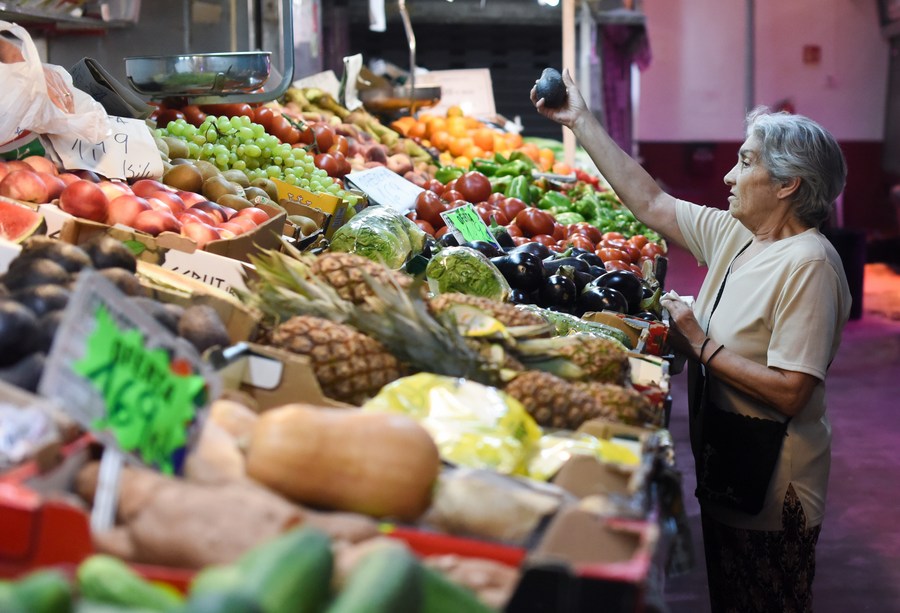
A woman shops at a market in Madrid, Spain, on Aug. 12, 2022. (Photo by Gustavo Valiente/Xinhua)
Low demand is another factor. "The output gap is still negative, household consumption is well below pre-pandemic levels and retail sales have in fact been on a declining trend since November," said Colijn, adding that the eurozone is mainly facing an unprecedented squeeze in real incomes.
Elevated inflation adds pressure on the European Central Bank (ECB), which raised key interest rates by 50 basis points in July and is expected to increase rates again at its meeting in September.
The ECB is planning for a return of its target two-percent inflation rate by using a "meeting-by-meeting approach to setting interest rates," said Philip R. Lane, an ECB executive board member, on Monday.
"Our overriding goal is to make sure that monetary policy will deliver the timely return of inflation to our medium-term two-percent target," said Lane.
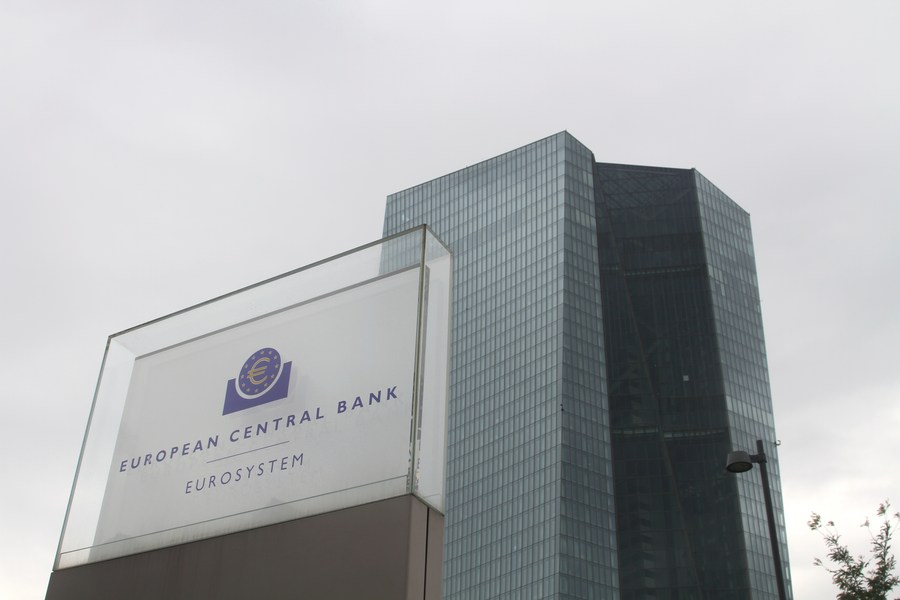
Photo taken on July 7, 2022 shows the headquarter of the European Central Bank in Frankfurt, Germany. (Xinhua/Shan Weiyi)
Photos
Related Stories
- Europe faces ‘coldest’ winter as energy crisis deepens, likely to prompt restructuring of global industrial chain
- Chinese GDRs in Europe boost capital
- Energy crisis deepens in Europe as extreme drought hits electricity output
- Heatwaves, severe droughts cause Europe searing pain
- Europe engulfed by new COVID-19 wave, says ECDC expert
- Interview: Europe suffers under its own sanctions on Russia, says Croatian analyst
- Roundup: Europe faces unusual mid-June heatwave
- Human smuggling gang busted in central, eastern Europe
- Europe faces non-energy challenges amid Ukraine crisis, experts say
- Guest Opinion: What has Europe lost from the Ukraine crisis?
Copyright © 2022 People's Daily Online. All Rights Reserved.








